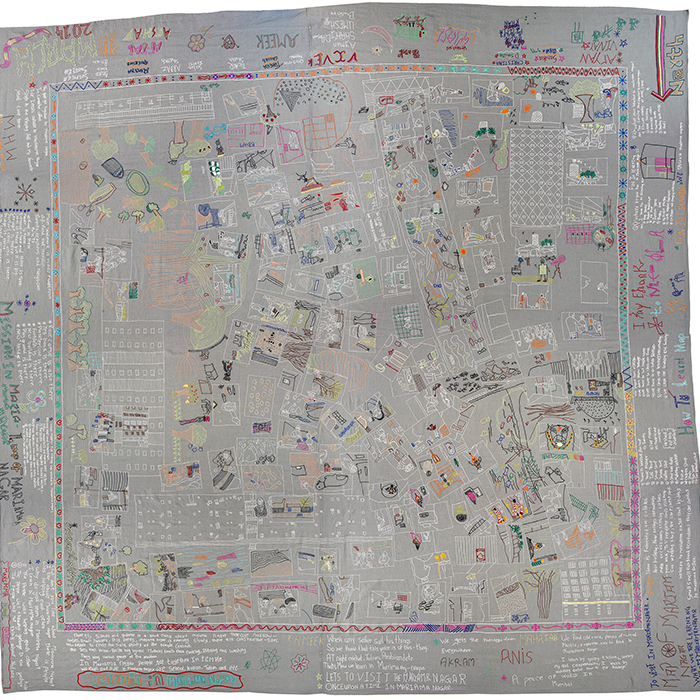A learning architecture: developing a collective design pedagogy in Mumbai with Muktangan schoolchildren and the Mariamma Nagar community
Nicola Antaki, University College London
Awards RIBA President's Awards for Research 2020
Category Cities and Community

This interdisciplinary research investigates architecture (an activity and a setting) as an educator. It proposes a collective design pedagogy, an idea for a socio-spatial learning practice that involves schoolchildren in the production of their city, to encourage multiple intelligences, and develop practices of responsible citizenship. This project is situated in Mumbai, a global city in which the changing population and environment has encouraged child-centred learning and a context for pedagogical innovation. In collaboration with the education Non-Governmental Organisation (NGO) Muktangan, it includes a series of pedagogic urban experiments investigating the city’s potential to house active citizenship practices by children, between 2012 and 2017. Four yearly series of workshops with the same class of schoolchildren ran during an incremental, experiential and reflective project to observe, assess and then transform their environment. The schoolchildren live in informal settlement Mariamma Nagar, that is also home to a variety of craftspeople and makers. Using activities borrowed from architectural practice, the children transform their school and neighbourhood, by designing interventions. Combining critical pedagogical praxis and constructivist theory of education, the development of a collective design practice fuses learning with the city: facilitated by designers, children become active citizens through design and work with local craft as a political design tool. They identify wellbeing as the overarching itinerary for their projects, designing responses to social and environmental problems such as open gutters, mosquitoes, fighting and bad language, lack of green spaces and insufficient waste management. The research argues children’s role as architects is pedagogical: they can be involved in the production of their current environment, facilitate their political identity, and foster their ability to communicate ideas. Design allows children to develop empathy, think critically and learn how to learn. Architects role as facilitators is pedagogical too: learning is reciprocal through a sustainable balancing of architecture, citizenship and participation.






